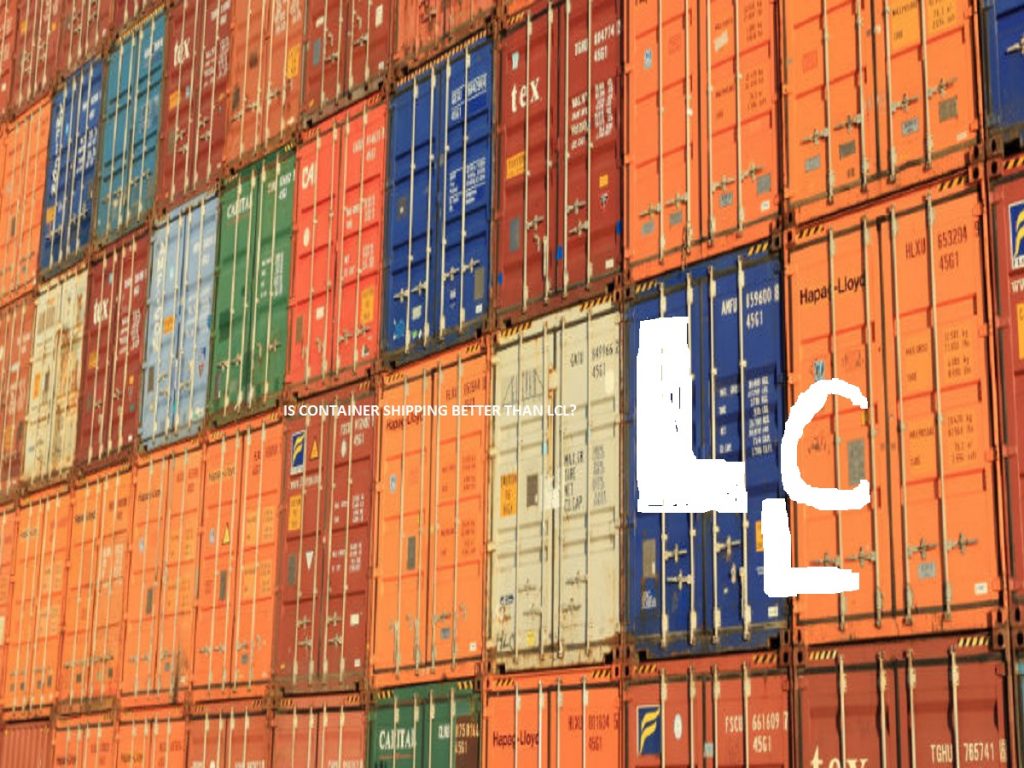Is container shipping better than LCL? In one word, I say yes. The next question that comes naturally is why is that? What do we mean by saying container shipping in Nigeria is better than LCL Nigeria is? This article intends to answer the why, what, and how container shipping is better than LCL Nigeria is. So, read on and savor all things to the end.
Table of Contents
ToggleRead also FORM M NIGERIA: HOW TO PROCESS AND OBTAIN IT
CONTAINER SHIPPING BETTER THAN LCL (GROUPAGE) NIGERIA
Cargo shipping by sea freight takes any of the following four routes:
- Full container load
- LCL – less than container load or groupage container
- Non-containerized packages.
- Bulk cargo or vessel
The goal of the importer is to minimize overall costs and maximize profit. However, costs and profits are not the only determinants that guide the choice of shipping methods. There are other factors like speed or urgency, simplicity of the process and consignment or cargo size. Therefore, in the nutshell, the importer’s choice of shipping method could be by any of the following factors:
- Cost and profit
- Time
- Size of shipment
- Security and risks of damage
- Complexity and flexibility, or simplicity of the process
In this article, we will compare the full container load and the less than container load in terms of cost, cargo size and time. The container could be 20 feet or 40 feet size, depending on commodity and quantity. The carriage of some items like foodstuff to Nigeria is with a 20 feet container.
CONTAINER SHIPPING BETTER THAN LCL: WHAT IS A FULL CONTAINER LOAD?
Full container load means cargo belonging to a particular importer is transportable via a container without sharing with other importers.
Some refer less than container load as groupage container, and is a shared system. This means that 20 feet or 40 feet container is shareable by different importers, each with loads smaller than full container capacity.
Read also CONSOLIDATION: SHIPPING LESS –THAN-CONTAINER
COMPARISON BETWEEN FULL CONTAINER LOADS AND LESS THAN CONTAINER LOADS
Recall that in the section, we said our comparison should be limited to cost, time taken, size of shipment, security/risks, and flexibility of process. Let us therefore present these comparisons in a tabular form for clarity. Note that these comparisons are arrived at using our years of experience in cargo handling in the Nigerian space.
COMPARISON BASED ON: | SHIPMENT TYPE: | |
| Time Taken to Deliver Cargo to Owner: | Full Container Load (FCL) | Less Than Container Load (LCL) |
| Takes lesser transit time and faster | Takes more time and slower. Time taking arises from delays in waiting for other Customers to gather items into container for a fuller load. Further delays may arise at the Customs due to incorrectness of documentation for some Customers in the groupage. Thus, delayed examination on any consignment impacts on others. Lastly, in Nigeria, there is additional request that one out of all customers must pay Customs duty before container release to bonded warehouse for clearing. | |
| Overall Cost. | More cost effective for cargo with more volume | More expensive based on higher cubic meter. Your kind of goods may incur extra cost due to its dimensions or shape, or even handling. May be less expensive for very small pieces of item. |
| Security and Risks | Very high level of security and lesser risks due to good packing and lesser handling of cargo | Less secured and more risks arising from much handling, damages could result from packing of other items belonging to another importer. What affects one consignment could have a distributive effect on others. |
| Flexibility | Has higher inventory and hence lesser flexibility for the shipper. However, shipper can have direct relation with shipping company without involving a forwarder. | Smaller the order, the lesser the inventory, and hence more flexible for the shipper. The shipper can pick consignment from warehouse directly to loading point of container without any intermediary. A cargo forwarder does the shipping for LCL instead of the direct relationship enjoyed by shipper in FCL. |
CONCLUSION
The question that informed the writing of this article is if container shipping better than LCL? Well, in answering this question, small caution need small caution. The reason is that no single answer works in all cases. So, to be little more specific, I would rather say on average yes, but depending on the case. If you import often, we recommend a consolidation of LCL shipments to one single FCL. In Nigeria for instance, LCL is highly expensive. Shipping Agencies come up with lots of things down the line.
Read also CARGO CLEARING NIGERIA PORTS: REGULAR ISSUES
Rules governing handling of LCL can change anytime, depending who is in charge at the Customs Command. One of the recent changes at Apapa Lagos requires one of the consignees in an LCL to pay duty before container is transferable to bonded warehouse for clearing. Contact us today for expertise advice tailored to suit your case.

